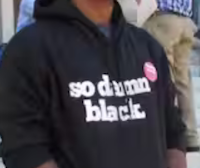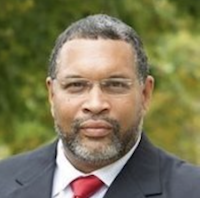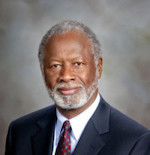In appearances over the weekend, various Ohio Republicans talked about the First Amendment, COVID, dismantling the FBI, and elections law

Chairman of the Conservative Political Action Conference (CPAC) Matt Schlapp (R) listens as U.S. Rep. Jim Jordan (R-OH) (L) speaks during the annual conference at Gaylord National Resort & Convention Center on March 2, 2023 in National Harbor, Maryland. The annual conservative conference kicked off Thursday with former President Donald Trump addressing the event on Saturday. (Photo by Alex Wong/Getty Images)
Conservatives from around the country descended on Washington, D.C. last week for the Conservative Political Action Conference. Organizers bill the event as the “largest and most influential gathering of conservatives in the world.”
Across four days of panels like “Parents with Pitchforks,” “The Red Menace Comes to the Americas,” and “Sacking the Woke Playbook” attendees reveled at the bleeding edge of conservatism with the likes of former president of Brazil Jair Bolsonaro and the MyPillow guy.
Among the speakers were a handful of Ohio Republicans. U.S. Rep. Jim Jordan, R-OH, and U.S. Sen. J.D. Vance, R-OH, both took turns on stage, as did Secretary of State Frank LaRose and Attorney General Dave Yost. Ohio entrepreneur and author Vivek Ramaswamy, who most recently launched a long-shot bid for the 2024 Republican presidential nomination, spoke at CPAC as well.
Jim Jordan
Thursday, Rep. Jordan took the stage with CPAC chairman Matt Schlapp.
Pointing to reports the Department of Energy has now concluded COVID-19 most likely began in a lab, Jordan took a victory lap. According to The Wall Street Journal, however, the Department rates its confidence in that conclusion as “low.” Aside from gloating Jordan, who now chairs the House Judiciary committee, said his chief goal is to protect the First Amendment.
“Without a doubt,” he said, “I would argue the most important thing we have is that — the liberties we enjoy under the First Amendment.”
In particular, he argued pandemic-era restrictions on in-person meetings represented a First Amendment violation. He brought up the New Mexico GOP meeting in Texas to avoid such restrictions. At the time, up to 150 people could gather in one place.
To protect the First Amendment, Jordan said, he would go after those who criticize conservatives.
“The way the left operates, if you don’t if you don’t agree with them, they’re gonna come after you, they’re gonna call you a fascist, a racist, that’s the canceled culture mob,” Jordan said.
“That’s the most important thing,” he added, “and this committee the Judiciary Committee is supposed to be the committee that protects the Constitution and the liberties we enjoy under the Constitution and in the Bill of Rights.”
Schlapp is facing a multimillion-dollar civil suit from a former staffer on Georgia senate candidate Herschel Walker’s campaign, who alleged Schlapp grabbed his crotch. The allegations and the lawsuit didn’t come up during their conversation.
J.D. Vance
Also Thursday, U.S. Sen. J.D. Vance, R-OH, shared the stage with U.S. Sen. Ted Cruz, R-TX, for a taping of the latter’s podcast, Verdict.
Like Jordan, Vance leaned into the lab leak theory, suggesting Anthony Fauci committed perjury in dismissing the lab leak theory.
“He used his government power,” Vance argued, “to shut down the functioning of the First Amendment so that we could not have an honest and open debate about where COVID came from and what to do about it, and I think it’s absolutely disgraceful what Tony Fauci did.”
Last November, Fauci insisted on Meet the Press he had a “totally open mind” to the idea, despite arguing the preponderance of evidence leans toward the virus developing naturally.
Cruz laid into the Biden administration for its handling of the train derailment in East Palestine. He argued “the Democrats don’t give a damn about East Palestine, because it’s a blue collar, red place and they’re like ‘to hell with you.’ If you were a bunch of transgender tech workers you’d have the entire Biden cabinet down there for a listening session and sit-in to feel their pain.”
Vance chuckled along as he went.
Vivek Ramaswamy
Friday night, investment manager Vivek Ramaswamy made his pitch to be the 2024 GOP presidential nominee. Ramaswamy leads Strive Capital, a fund built in direct opposition to those that attempt to balance environmental and social impacts against profit. He has also built something of a cottage industry for himself around his rejection of so-called ‘woke’ politics.
Ramaswamy promised to eliminate affirmative action, the Department of Education, and the FBI. He promised to use the American military to “end the fentanyl epidemic in this country”
“We can do it to Bin Laden, we can do it to Soleimani, we can do it to the Mexican drug cartels south of the border,” Ramaswamy said.
Immediately after arguing the U.S. should violate Mexican sovereignty, he turned to perhaps the most famous demand for self-determination in history, insisting, “What it means to be American, means you believe in the Declaration of Independence.”
Among his more consequential suggestions, Ramaswamy one-upped former President Donald Trump’s trade war with China by suggesting the U.S. simply boycott the country outright.
“We got to be willing to ban most U.S. businesses from doing business in China until the CCP falls or until the CCP radically reforms itself,” he argued, “because there is no easy way out, other than taking that band aid and ripping it right off.”
“I’m sorry Henry Kissinger,” he said. “we’re done with your experiment in America.”
For all Ramaswamy’s fervor, though, he often winds up recreating the thing he says he opposes. His response to the “overreach” of independent executive officials like Anthony Fauci or Merrick Garland would be “you fire them, you fire their employees, you fire the managerial industrial complex around them.”
Dave Yost
Saturday Ohio Attorney General Dave Yost participated in a panel titled Finish the Wall, Build the Dome. The conversation quickly turned from the ostensible topic of border security to a discussion of non-citizen voting and voter-ID.
Asked if he believes “a certain percentage of the total vote is delivered by illegals in America” Yost confusingly offered his version of a Perry Mason moment. He explained the first thing he learned as prosecutor was to establish the identity of a perpetrator.
“You’ve all seen this on TV, right?” he said. “They ask the witness, ‘Do you see the man that assaulted you in the courtroom?’”
“‘That’s him.’” Yost added on in a different voice. “That’s the identity. How are you going to be able to tell the answer to your question, if you don’t have ID?”
On to the topic of voter ID more generally, Yost turned to the oft-cited stat that about 80% of Americans favor the policy. In Pew Research and Gallup surveys, majorities also oppose removing voters from the rolls for inactivity (as Ohio does) and support automatically registering people to vote (as Ohio does not).
“Ohio just passed the (voter ID) law,” Yost said, “You know what happened? As soon as we pass the law, common sense law requiring common sense security, including voter ID. Marc Elias sued us. And you know what, we’re gonna fight him and we’re going to win that case.”
Frank LaRose
Ohio Secretary of State Frank LaRose spoke Saturday as well on a panel titled, “They Stole It From Us Legally.” LaRose didn’t get much chance to talk, though.
Trump White House deputy press secretary Hogan Gidley led the panel. He asked LaRose about a data project the secretary is working on with the America First Policy Institute, a think tank set up by former Trump officials.
Using generally accepted accounting principles as a contrast, LaRose argued there’s no standard model for election data.
“All of those things need to be standardized,” LaRose insisted. “This bill that we’re doing in Ohio called Senate Bill 71, written with and with the support of America First is going to throw open the books and make sure that elections in Ohio and other states are transparently run so that you can do that post-election audit and actually make some sense of these numbers.”
Two years ago LaRose criticized a Congressional effort to expand voting rights and end gerrymandering as “forcing uniform standards, procedures, and expectations into state election systems.”
Beyond touting SB 71, which creates a kind of clearinghouse for state election data, Gidley asked LaRose about the 2024 U.S. Senate race. LaRose called incumbent U.S. Sen. Sherrod Brown, D-OH, “a national embarrassment.”
“Our party needs to nominate a good candidate that can actually take it to him and finally defeat this guy,” LaRose said. “It’s something I’m looking at, but no announcement here on the CPAC stage today.”
• • •• • •
This story is provided by Ohio Capital Journal, a part of States Newsroom, a national 501 (c)(3) nonprofit. See the original story here.


















